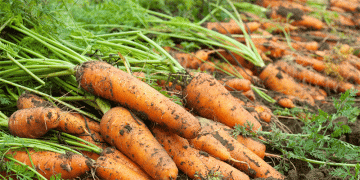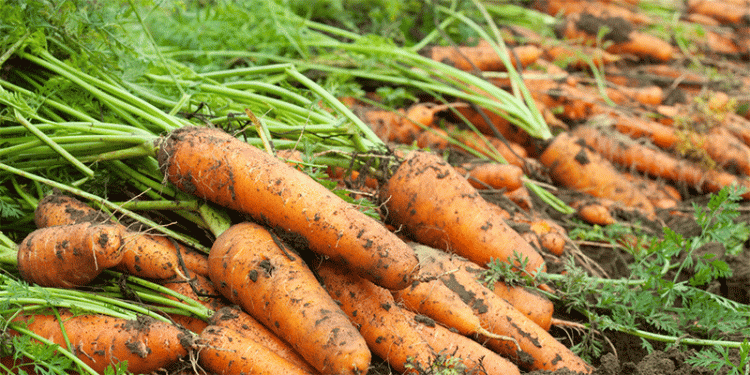The health benefits of carrots are well-known, but emerging research is making a more profound claim: specific cultivars, grown under specific conditions, can possess significant bioactive properties. A recent study in the journal Frontiers in Immunology moves beyond general dietary advice, providing scientific evidence that a carrot cultivar named ‘Naturaldream’ can reduce the risk of colorectal cancer through multiple biochemical pathways.
This shifts the paradigm for producers from viewing carrots as a simple commodity to a potential high-value functional food, where agronomic practices directly influence the biological value of the final product.
Deconstructing the Anti-Cancer Mechanism: Soil, Plant, and Physiology
The South Korean and Chinese research team conducted experiments on laboratory mice with induced colorectal cancer. The group treated with the ‘Naturaldream’ carrot extract showed remarkable results:
- Tumor Reduction: A significant decrease in the number of tumors and inflammatory foci.
- Apoptosis Activation: Increased activity of genes responsible for programmed cell death of damaged cells.
- Inflammation Suppression: A marked reduction in key inflammatory cytokines (TNF-α, IL-6, and NF-κB) that fuel tumor progression.
- Microbiome Modulation: The extract helped restore a healthy gut microbiota balance, increasing populations of beneficial bacteria that strengthen the gut lining.
Critically, the researchers attribute these potent effects to the unique mineral profile of the carrots, which were cultivated using inputs that mimic a marine ecosystem. As Professor Zhang Wei from Peking University noted, “The chemical composition of the soil directly affects the biological value of the product.” This underscores a direct link between agronomy and human health.
The Agronomic Opportunity: Breeding and Biofortification
This research aligns with a growing global focus on the biofortification of crops. According to a 2023 report by the Food and Agriculture Organization (FAO), enhancing the micronutrient content of staple foods is a key strategy for improving public health. Furthermore, a meta-analysis in the Journal of Agricultural and Food Chemistry highlighted that variations in growing conditions—including soil mineral content and salinity—can dramatically alter the concentration of phenolic compounds and antioxidants in vegetables.
For the agricultural sector, this opens several strategic avenues:
- Cultivar Selection: Identifying and propagating existing cultivars with naturally high levels of specific bioactive compounds.
- Precision Nutrition: Developing specialized fertilizer regimens, potentially incorporating sea mineral-based products, to enhance the antioxidant and anti-inflammatory profile of crops.
- Value Proposition: Creating a new market segment for “functionally-grown” vegetables, certified for their enhanced nutritional and health-promoting properties, which can command premium prices.
A New Paradigm for Vegetable Production
The findings from this study are a clarion call to the agricultural industry. The health value of a crop is not fixed; it is a variable that can be optimized through deliberate agronomic and genetic choices. The ‘Naturaldream’ carrot case study proves that we are on the cusp of a new era where farmers and agronomists can actively cultivate food that is not just nutritious, but functionally protective.
For farmers and farm owners, this represents an opportunity to diversify and capture higher margins. For agronomists and engineers, it presents the challenge and excitement of developing new, precision growing protocols. For scientists, it validates the immense potential of linking soil health directly to human health. The future of agriculture may well lie in growing medicine on our farms.































